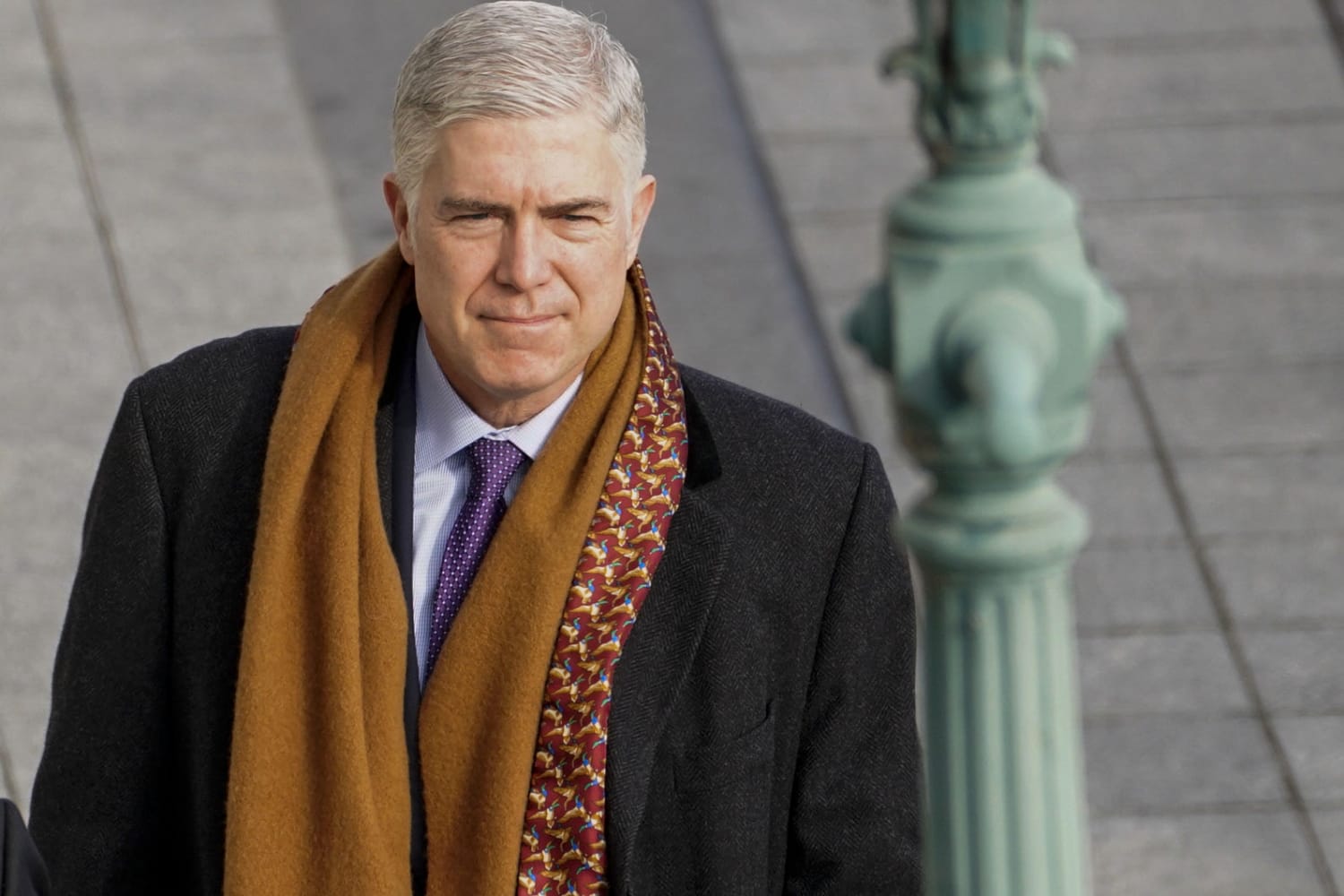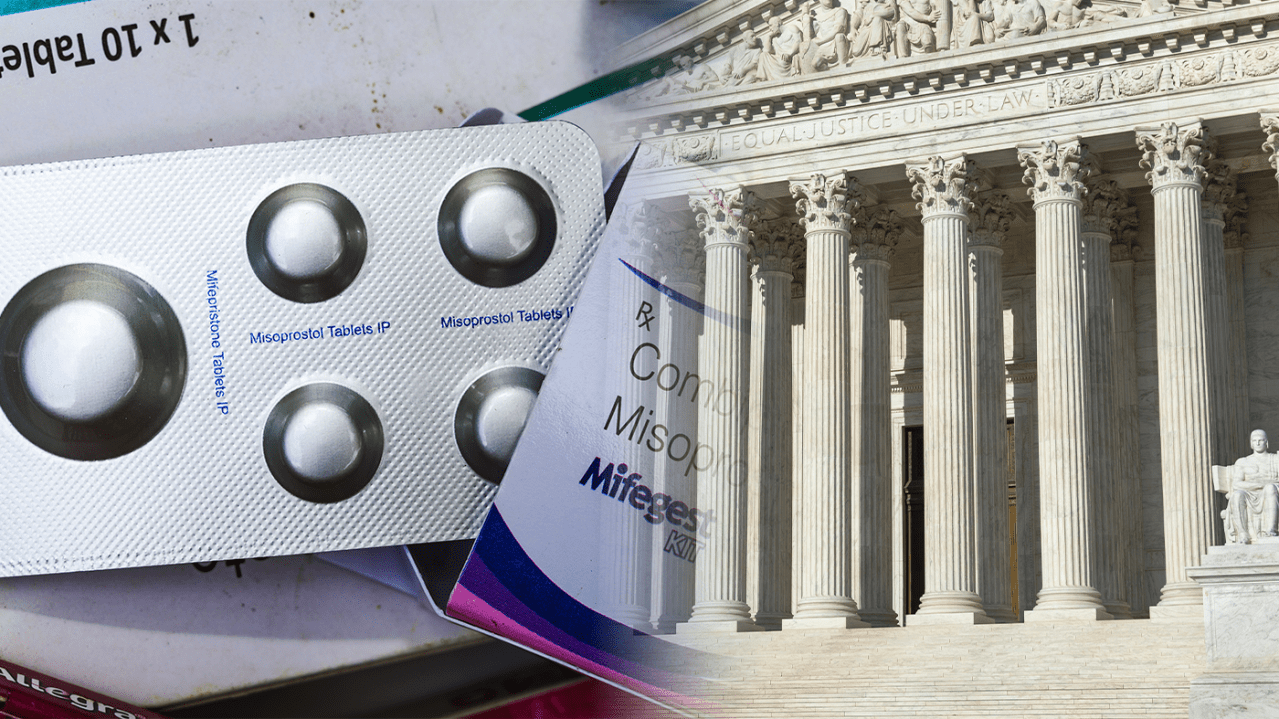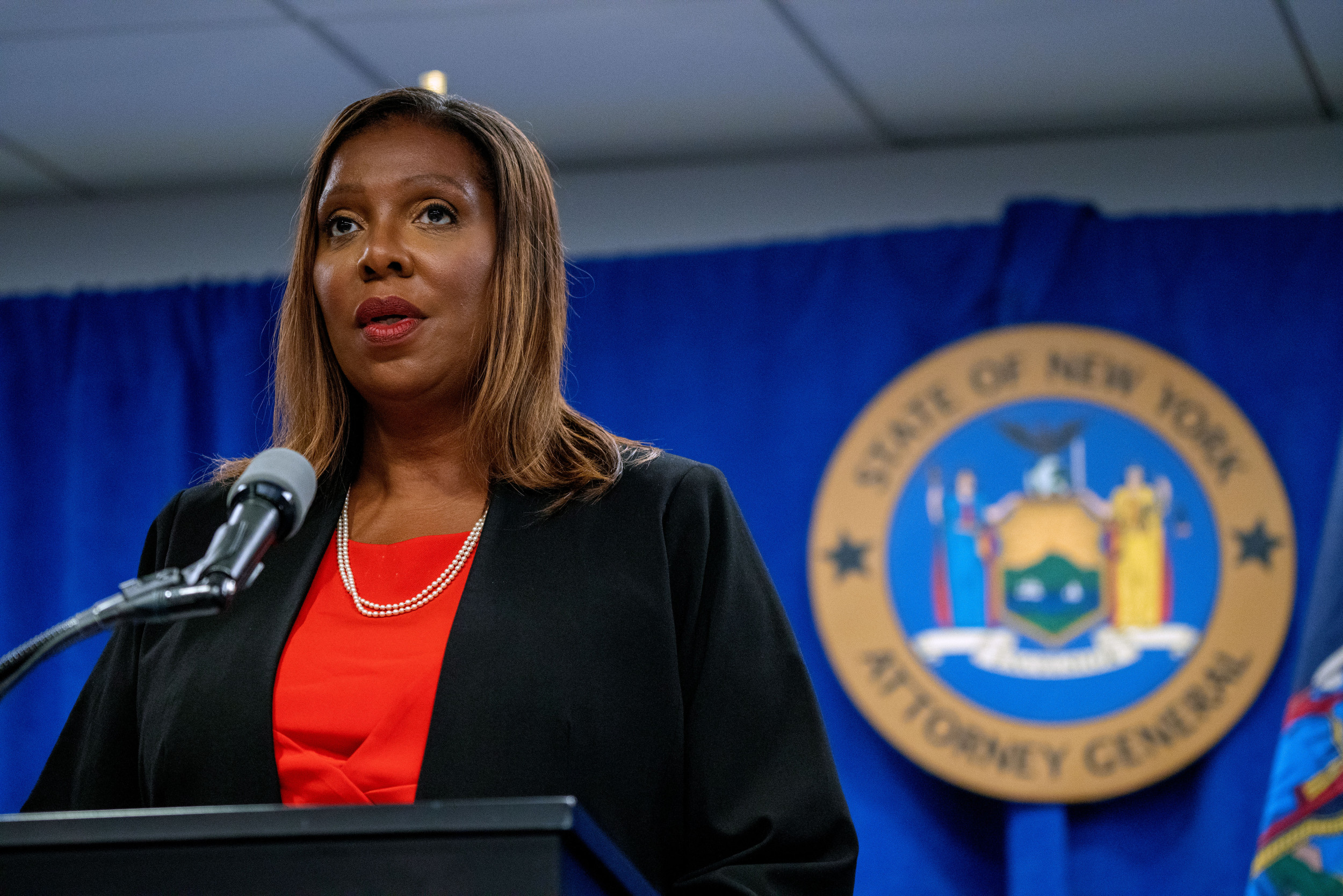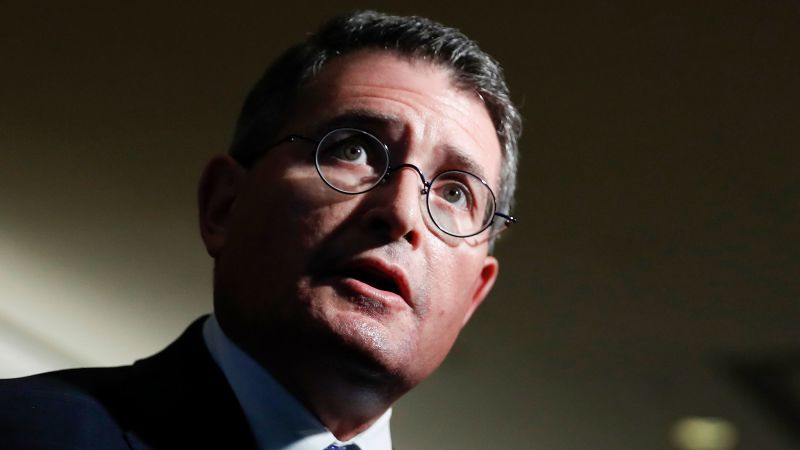Biden social media case heads to Supreme Court
The Biden administration’s legal battle over social media content moderation will reach the Supreme Court on Monday, when the justices are set to hear arguments over whether federal officials violated the First Amendment by urging platforms to remove posts they deemed false or misleading.
Two Republican attorneys general brought the case in a challenge to the administration’s efforts to curb misinformation online — an effort they described as a government “campaign of censorship.” They purported federal officials “coordinated and colluded” with social media platforms to “identify disfavored speakers, viewpoints, and content.”
At the heart of the case were attempts by the Biden administration to police online misinformation about the legitimacy of the 2020 election and COVID-19, when doubts about vaccines ran rampant.
“The question is how you draw the line between government speech that is permissible and government speech that imposes coercive power on the platforms — or excessive entanglement, excessive cooperation between private speakers and the government,” said Bob Corn-Revere, chief counsel for the Foundation for Individual Rights and Expression.
“And that’s the difficult line that the court is going to try and draw,” he said.
A Louisiana-based federal judge sided with the attorneys general last summer and barred Biden administration officials from contacting social media companies relating to “any manner the removal, deletion, suppression, or reduction” of content containing “protected free speech.”
But court watchers criticized the district court judge’s decision as overbroad, and in September, a three-judge panel on the 5th U.S. Circuit Court of Appeals narrowed the judge’s order.
However, the 5th Circuit panel agreed with the lower court that Biden administration officials likely did violate the First Amendment by urging social media companies to take down specific content, ruling that federal agencies cannot “coerce” social media platforms to remove posts countering the government’s stance.
At first, the 5th Circuit judges found that the White House, FBI and Centers for Disease Control and Prevention crossed the line into coercion, while the National Institute of Allergy and Infectious Diseases, the Cybersecurity and Infrastructure Security Agency (CISA) and State Department did not. After rehearing the case, the panel ruled that CISA did overstep.
After the Supreme Court took up the case, Missouri Attorney General Andrew Bailey — one of the two GOP attorneys general who brought the case — said his team looks forward to “dismantling
Joe Biden’s vast censorship enterprise at the nation’s highest court.”
The Biden administration has argued that barring talk between federal officials and social media companies limits the government’s ability to address matters of public concern, prevent national security threats and relay information.
“Of course, the government cannot punish people for expressing different views, and it cannot accomplish the same thing indirectly by threatening to punish private actors for disseminating those views,” the Justice Department wrote in its brief to the Supreme Court.
“But so long as the government seeks to inform and persuade rather than to compel, its speech poses no First Amendment concern — even if government officials state their views in strong terms, and even if private actors change their speech or conduct in response,” the brief continued.
Tech groups have vigorously asserted their positions in amicus briefs to the Supreme Court, many arguing that the justices should steer clear of labeling them state actors because of their communication with the government.
“They are private platforms. They have their own First Amendment rights. And just because they have been pushed into a corner by an administration and basically strong-armed into playing ball, they don’t want to have that be the factor that converts them into state actors,” Corn-Revere said.
David Greene, director of civil liberties at the digital rights advocacy group Electronic Frontier Foundation, said in a statement that there are times when communication between government officials and social media platforms is “permissible, appropriate and even good public policy.” But when the government crosses the line into “co-option” of content moderation, it becomes a “serious threat to freedom of speech.”
“The Supreme Court must independently review the record and make the searching distinctions that the lower courts did not,” Greene said.
The case adds to a Supreme Court term dominated by critical social media issues that could have resounding implications for online speech.
Earlier this term, the justices heard cases probing whether public officials can block critical constituents from their personal social media accounts and whether the U.S. Constitution allows states to stop social media companies from removing posts over their viewpoints.
Later Monday, the justices will consider whether a New York state official infringed on the National Rifle Association’s speech by discouraging banks and insurers from working with it — a case that draws parallels to the Biden administration’s social media case.
If the justices’ questioning follows current trends, the Biden administration could face sharp criticism on and some alarm about the government’s relationship with social media companies.
During arguments last month over the two state social media laws, Justice
Samuel Alito quipped that deeming what he called “censorship” as “content moderation” verges into an “Orwellian temptation to recategorize offensive conduct in seemingly bland terms.”
Justice
Elena Kagan drew attention to the fine line between First Amendment-protected action and state action by citing former President Trump’s account on X, the platform formerly known as Twitter, in arguments for the social media blocking case.
The high court issued a stay of the 5th Circuit’s injunction until after it decides the case on its merits, meaning administrative officials could continue contacting social media companies while the justices consider the case.
Alito, along with fellow conservative Justices
Clarence Thomas and
Neil Gorsuch, forcefully dissented.
“At this time in the history of our country, what the Court has done, I fear, will be seen by some as giving the Government a green light to use heavy-handed tactics to skew the presentation of views on the medium that increasingly dominates the dissemination of news,” Alito wrote in his dissenting opinion. “That is most unfortunate.”
But Corn-Revere warned that the issue before the court is not a partisan one; federal and state officials across party lines could be equally restricted by a ruling to curb the “bullying” of social media platforms into doing the government’s bidding.
“It is an effort by the Court, I believe, to lay down rules for what the limits are of the government being able to put its thumb on the scale,” he said.
The Biden administration’s legal battle over social media content moderation will reach the Supreme Court on Monday, when the justices are set to hear arguments over whether federal officials viola…

thehill.com

 www.nbcnews.com
www.nbcnews.com










